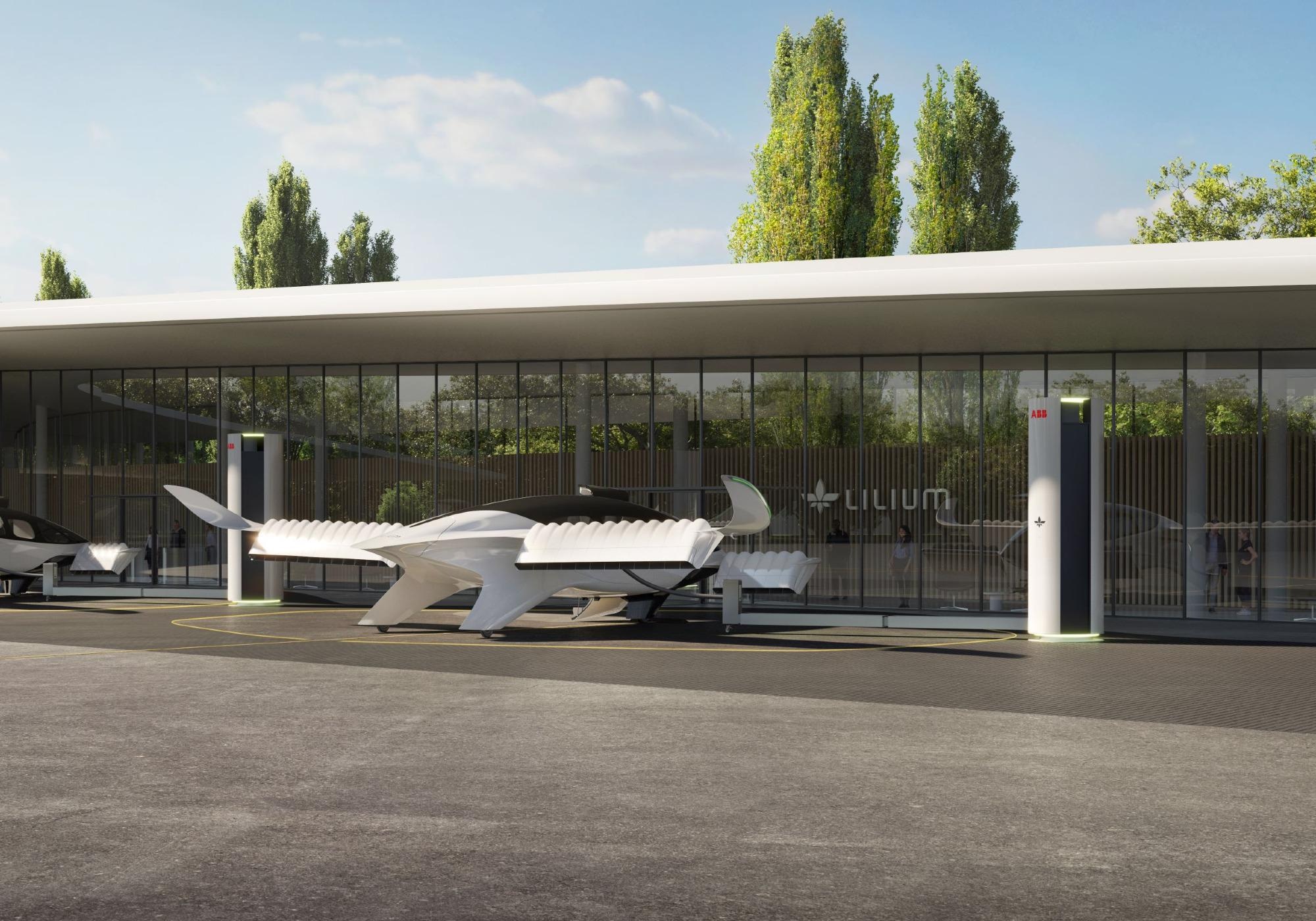ABB E-mobility and Lilium N.V. (“Lilium”), positioned to be a global leader in regional electric air mobility, have announced plans for ABB to provide the charging infrastructure for Lilium’s high speed regional air network, scheduled for commercial launch in 2024.

Image Credit: ABB
Lilium has announced planned launch networks in Florida, Germany, and Brazil. As part of the agreement, ABB will develop, test and supply the MegaWatt fast charging infrastructure necessary for the quick turnaround times needed for electric aviation. The ABB charging points are designed to be capable of fully charging batteries in approximately 30 minutes, and charging up to 80% in 15 minutes, enabling the 20-25 flights per aircraft per day planned across Lilium’s global vertiport network. The initial range of a 7-Seater Lilium Jet is expected to be 155 miles with a cruise speed of 175 mph.
“Combining Lilium’s mission to grow sustainable aviation with ABB’s global market expertise and leadership in e-mobility and charging infrastructure is a win for the environment and a win for passengers,” said Frank Muehlon, President of ABB’s E-mobility Division. “Moreover, we see this planned partnership as an important commitment to all relevant charging standards that are adopted by multiple electric ‘vehicle’ manufacturers. By supporting the new MegaWatt charging standard, ABB E-mobility is paving the way for the electrification of all modes of transport, from cars and trucks to marine vessels, mining vehicles, and now, aviation.”
In 2019, global CO₂ emissions from all commercial air operations totaled 918 million tons, an increase of 29 percent since 2013¹. With passenger transport responsible for 780 million tons, or 85 percent, of the total emissions from air operations, decarbonization of transport is a vital step towards combatting climate change and building a more sustainable future.
Daniel Wiegand, CEO and Co-Founder of Lilium, added, “We believe that the decarbonization of aviation is both urgent and inevitable. Making sure we have the right charging infrastructure will play a crucial role in enabling our high-speed regional air network by allowing quick and efficient charging. We are proud to be working with ABB, who bring decades of experience in electrification and software, to set the charging industry standard for electric aviation.”
The regional air network will be made up of a series of vertiports, which will have multiple parking bays and high-power charging points. The MegaWatt Charging System (MCS), the infrastructure to be developed under this planned partnership, will allow direct current (DC) charging of up to 1000 kW and can also be used for electric heavy-duty vehicles, such as trucks and buses. In the development of the MCS, ABB and Lilium plan to adhere to the relevant standards that support interoperability.
CharIN, the organization that promotes interoperability based on the Combined Charging System (CCS) as the global standard for charging vehicles of all kinds, initiated the Task Force “Megawatt Charging System” in 2018 to prepare international charging standard for commercial vehicle high power charging.
The partnership remains subject to the parties finalizing commercial terms and definitive documentation relating thereto.
¹https://theicct.org/publications/co2-emissions-commercial-aviation-2020